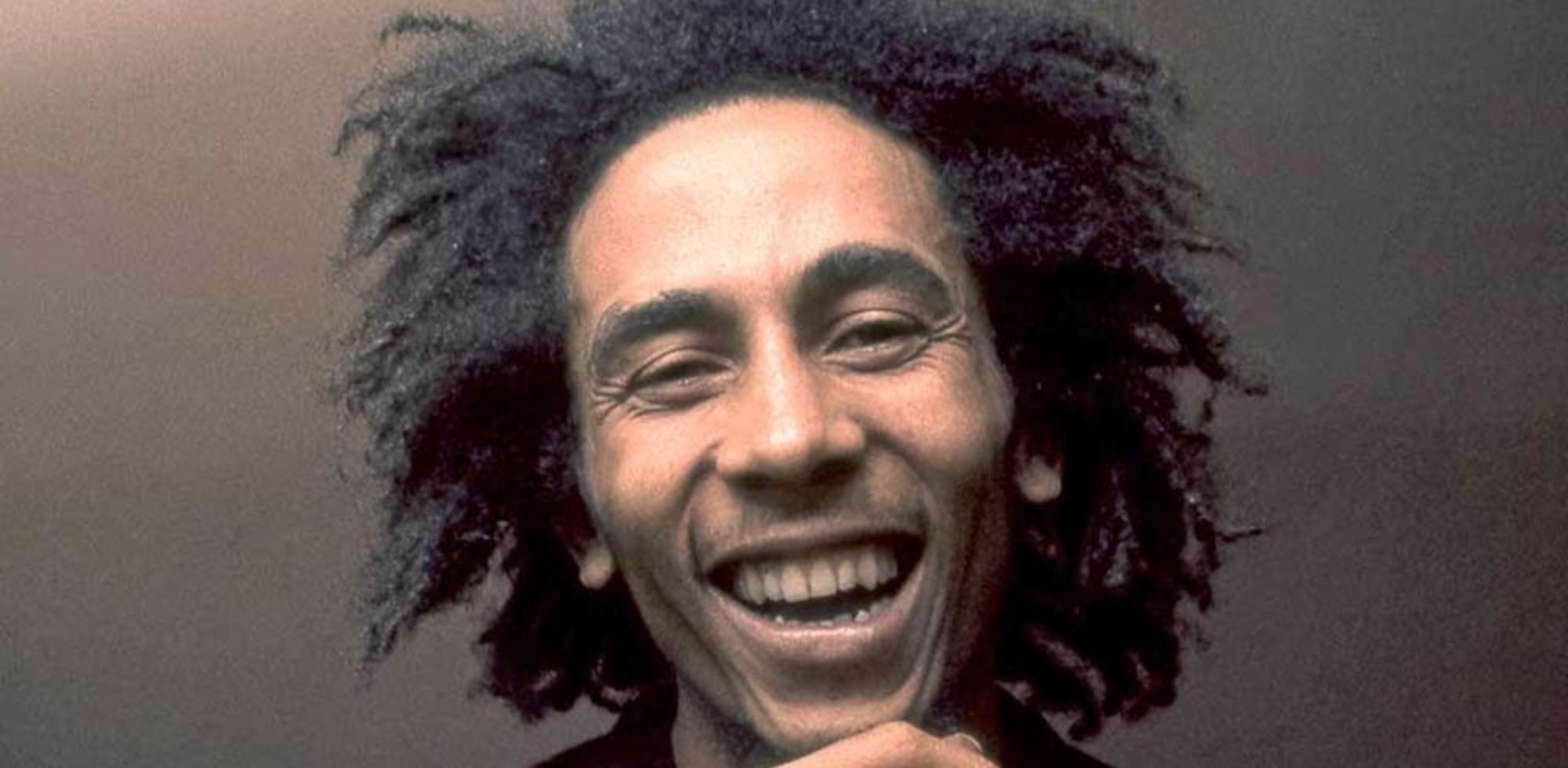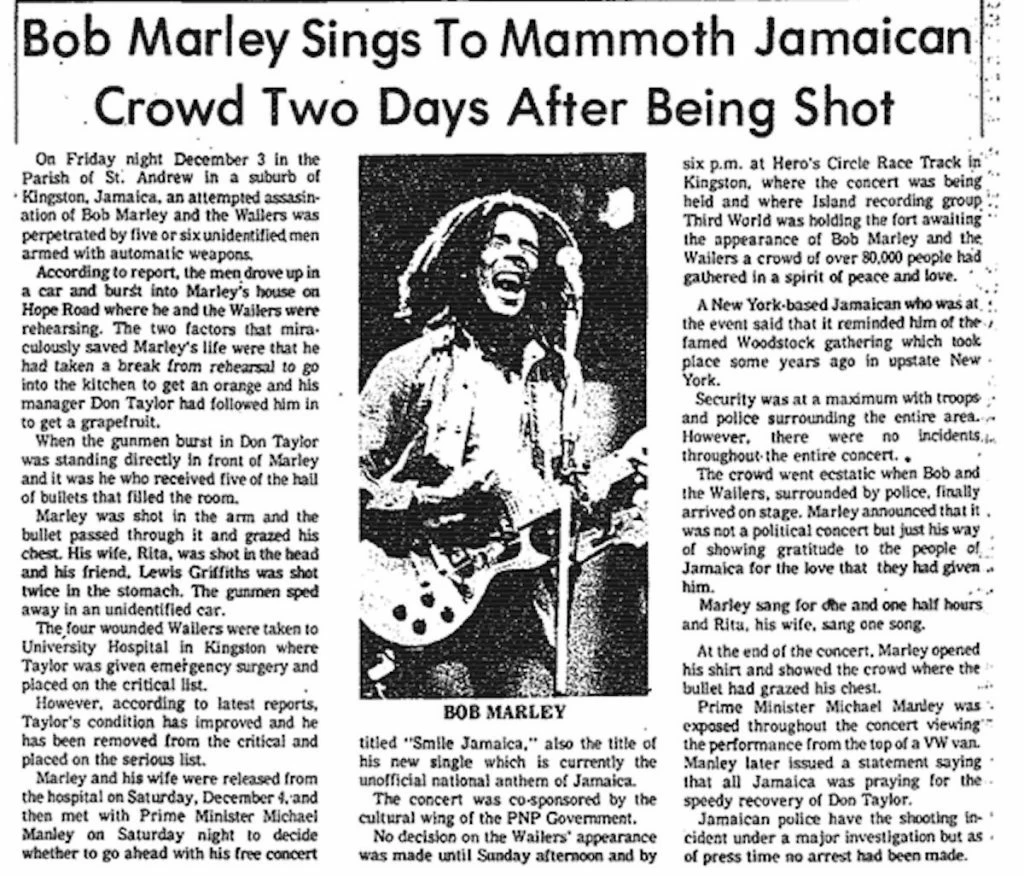Bob Marley Died Reason: The Untold Story Behind The Legend's Passing
When you think about Bob Marley, you probably picture him strumming a guitar, spreading messages of love, unity, and resistance. But behind that iconic image lies a tragic story that many fans might not fully understand. The reason behind Bob Marley's death is more complex than most people realize. It's not just a matter of illness; it's a tale of resilience, denial, and ultimately, fate. So, let's dive into the real story behind why Bob Marley passed away, and what it means for his legacy today.
Bob Marley's life was a rollercoaster of music, activism, and spirituality. But like many legends, his journey wasn't without its challenges. The reggae icon's passing in 1981 left the world in shock, and even decades later, people are still curious about the exact reasons behind his death. Sure, cancer is the official cause, but there's so much more to the story than just that diagnosis.
This article aims to shed light on the circumstances surrounding Bob Marley's death, including the medical details, personal decisions, and the impact it had on his family and fans worldwide. So grab a cup of coffee—or a spliff if that's your vibe—and let's explore the untold truth behind Bob Marley's passing.
Read also:Secure Remote Access With Remoteiot Ssh A Comprehensive Guide
Table of Contents
- Bob Marley Biography
- Bob Marley's Health Journey
- The Diagnosis That Changed Everything
- Treatment Options: What Could Have Been Done
- Personal Decisions That Shaped His Fate
- The Final Days of Bob Marley
- The Impact of His Passing
- Bob Marley's Legacy Lives On
- Frequently Asked Questions
- Sources and References
Bob Marley Biography
Before we dive into the reason behind Bob Marley's death, let's take a quick look at the man himself. Born on February 6, 1945, in Nine Mile, Jamaica, Robert Nesta Marley was more than just a musician. He was a cultural icon, a political activist, and a spiritual leader who used his voice to bring awareness to the struggles of the oppressed.
Bob's early life was marked by challenges, growing up in a poor neighborhood with his mother Cedella Booker and half-siblings. Despite the hardships, he found solace in music, eventually forming the Wailers with friends Peter Tosh and Bunny Wailer. The rest, as they say, is history.
Here's a quick rundown of Bob Marley's life in a table format:
| Birth Name | Robert Nesta Marley |
|---|---|
| Date of Birth | February 6, 1945 |
| Place of Birth | Nine Mile, Saint Ann Parish, Jamaica |
| Occupation | Singer, Songwriter, Activist |
| Years Active | 1962–1981 |
| Spouse | Rita Marley |
| Children | 12+ (officially recognized) |
Why Bob Marley Matters
Bob Marley wasn't just another musician; he was a symbol of hope for millions around the world. His music transcended borders, languages, and cultures, spreading messages of peace, love, and resistance. Songs like "No Woman, No Cry," "One Love," and "Redemption Song" remain timeless classics that continue to inspire generations.
Bob Marley's Health Journey
Bob Marley's health issues began long before his passing. The story starts in 1977 when he noticed a small sore on his toe. At first, it seemed like a minor issue—perhaps a blister from playing soccer, one of his favorite pastimes. But as time went on, the sore didn't heal. Instead, it worsened, leading to a diagnosis that would change everything.
Early Signs and Symptoms
Here are some of the early signs that something was wrong with Bob Marley's health:
Read also:Exploring Rule 34 Sophie Rain A Comprehensive Guide
- A persistent sore on his toe that wouldn't heal
- Fatigue and weakness during performances
- Unexplained weight loss
Despite these symptoms, Bob continued to perform, believing that his music was more important than his health. This relentless dedication would later prove to be both admirable and tragic.
The Diagnosis That Changed Everything
In 1977, Bob Marley was diagnosed with malignant melanoma, a form of skin cancer, on his toe. Melanoma is one of the most serious types of skin cancer, and early detection is crucial for successful treatment. Unfortunately, Bob's journey with the disease would be anything but straightforward.
Understanding Melanoma
Melanoma is a type of cancer that develops in the cells responsible for producing melanin, the pigment that gives skin its color. It can spread rapidly if not treated early, making it one of the deadliest forms of skin cancer. According to the American Cancer Society, melanoma accounts for about 1% of all skin cancers but is responsible for the majority of skin cancer deaths.
Bob's melanoma was particularly aggressive, and by the time it was diagnosed, it had already begun to spread. This complicates matters significantly, as melanoma that has metastasized is much harder to treat.
Treatment Options: What Could Have Been Done
When Bob was first diagnosed, doctors recommended amputating his toe to prevent the cancer from spreading. However, Bob refused the procedure, citing his Rastafarian beliefs and his desire to continue playing soccer—a sport that required him to have all his toes intact.
Looking back, this decision was controversial. While Bob's reasoning was rooted in his spiritual and personal beliefs, it also meant that the cancer had more time to spread unchecked. Modern medicine offers a variety of treatments for melanoma, including surgery, chemotherapy, immunotherapy, and targeted therapy. But in the late 1970s, options were more limited.
Why Bob Said No to Amputation
Bob's decision not to amputate his toe was deeply personal. For him, losing a part of his body was akin to losing a part of his identity. As a devout Rastafarian, he believed in the sanctity of the body and the importance of maintaining its natural state. This belief, combined with his love for soccer, led him to reject the amputation.
While we can't judge his choices, it's important to understand the cultural and spiritual context that influenced his decision. Bob Marley was more than just a musician; he was a spiritual leader who lived by his principles, even when it meant putting his health at risk.
Personal Decisions That Shaped His Fate
Bob Marley's personal decisions played a significant role in the progression of his illness. From refusing amputation to continuing to tour despite his declining health, Bob prioritized his music and message over his own well-being. This dedication was both inspiring and heartbreaking, as it ultimately led to his early death.
Continuing to Tour
Even as his health deteriorated, Bob refused to stop performing. In 1980, he embarked on a European tour, despite feeling weaker with each passing day. The tour culminated in a legendary performance at Madison Square Garden, where Bob collapsed on stage, signaling the end of his career and the beginning of his final days.
This commitment to his art, even in the face of death, is a testament to Bob's passion and dedication. But it also raises questions about the cost of fame and the sacrifices artists make to pursue their dreams.
The Final Days of Bob Marley
Bob Marley's final days were marked by a desperate attempt to find a cure for his illness. After collapsing during the Madison Square Garden concert, he was taken to a hospital in Germany, where he underwent alternative treatments based on the work of Dr. Josef Issels. These treatments, while unconventional, were Bob's last hope for survival.
Unfortunately, the cancer had already spread too far. On May 11, 1981, Bob Marley passed away in a hospital in Miami, Florida, at the age of 36. His death was a shock to the world, and it left a void that many felt would never be filled.
Bob's Final Words
Before he passed, Bob reportedly told his son Ziggy, "Money can't buy life." These words have resonated with fans and critics alike, serving as a reminder of Bob's commitment to living authentically and prioritizing what truly matters in life.
The Impact of His Passing
Bob Marley's death had a profound impact on both his family and his fans. For his children, it meant growing up without their father, but also inheriting his legacy and carrying on his message through their own music and activism. For his fans, it meant losing a voice that had inspired them to fight for justice and equality.
Despite his untimely passing, Bob's influence continues to grow. His music remains relevant, and his message of unity and resistance continues to inspire new generations. In many ways, Bob Marley's death only solidified his status as a global icon.
Bob Marley's Legacy Lives On
Bob Marley's legacy extends far beyond his music. He was a symbol of hope, a voice for the voiceless, and a reminder that even in the face of adversity, we can choose to stand tall and fight for what we believe in. His death may have been tragic, but his impact on the world is immeasurable.
Today, Bob Marley's music continues to resonate with people from all walks of life. His songs are played at protests, weddings, and funerals, serving as a reminder of the power of music to bring people together. And while his physical presence may be gone, his spirit lives on in the hearts of millions who have been touched by his music.
Frequently Asked Questions
Why Did Bob Marley Die?
Bob Marley died from complications related to malignant melanoma, a form of skin cancer that spread throughout his body. His refusal to undergo amputation and his continued touring despite his declining health contributed to the progression of the disease.
Could Bob Marley Have Been Saved?
In theory, early amputation of his toe could have prevented the cancer from spreading. However, given the limitations of medical treatments in the late 1970s and the aggressive nature of his melanoma, it's difficult to say whether he could have been saved.
What Was Bob Marley's Last Message?
Bob's last words to his son Ziggy were, "Money can't buy life," a reminder of the importance of living authentically and prioritizing what truly matters.
Sources and References
This article draws on a variety of sources, including:
These sources provide valuable insights into Bob Marley's life, health, and legacy, ensuring that the information presented here is accurate and well-researched.
Conclusion
Bob Marley's death was a tragic loss for the world, but his legacy continues to inspire millions. His dedication to his music, his principles, and his message of unity and resistance will forever be remembered. While we can't change the past, we can

